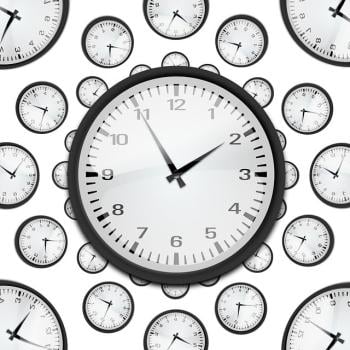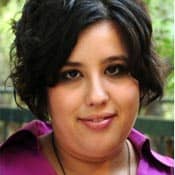In the Eikev portion, Moses continues his epic speech to the Jews. The book of Deuteronomy, or Devarim, where Eikev appears, is a collection of three speeches from Moses to the Jews. In this portion of his speech, Moses tells the Jews that God will provide for them if they obey God:
God will Love you, bless you, and multiply you, and God will bless the fruits of your womb and the fruits of your land; your grain, your wine and your oil. (Deuteronomy 7:13).
God is bringing you into a good land; a land with streams of water, of spring and underground water...a land where you will eat bread without poverty. (Deuteronomy 8:7-9).
In the midst of praising the earthly prosperity that the Jews will receive in Israel, Moses tells the Jews the following well known line: "Not by bread alone does man live, but by everything that emanates from the mouth of God does man live" (Deuteronomy 8:3). The first half of the line is far less cited: "God afflicted you and let you hunger, and then he fed you the manna that you did not know, nor did your forefathers know, in order to make you know that not by bread alone does man live...." By excluding the first half of the sentence and broader context of "not by bread alone," the common interpretation of this text is able to move away for its material roots.
"Not by bread alone" appears in the middle of discussing the material glories that await the starved Jews, who endured a less than comfortable life in the desert, relying on the strange and unfamiliar food, the manna. The promise of "bread without poverty" is contingent upon obeying the God who purposely starved the Jews to teach them that "not by bread alone" they will live. Here, the lesson is one of reliance on God for physical survival, a lesson forty years in the making. At its core, this is the argument that God causes suffering to bring the person closer to God. This is the theology where "not by bread alone" started out at, but this is not where it ended up. "Not by bread alone" has come to represent spiritual sustenance and its corollary individual dignity.
"Not by bread alone" begins in Deuteronomy, where, like in the rest of the Torah, the predominate and perhaps even sole concern is the earthly reality of food, drink and shelter. There is no good that is not of the earth and belongs to the earth. God's good, then, becomes the earthly good—"your grain, your wine and your oil." While our contemporary need for God's good to be God itself is not reflected in the original reading of "not by bread alone," nevertheless, this is what we hear in these powerful words. This phrase resonates with our spirit. Material wealth, whatever its source, it is not enough for a good life, not even close. However religious or humanist the framework, we want self-actualization.
Given our drive to re-envision this phrase, it is not surprising then, that "Not by Bread Alone" is the title of a show performed by an Israeli, deaf-blind theater group. During the show, the performers tell their stories while baking bread, which they then share with the audience. "Not by Bread Alone" is also the title of a novel, published in 1956 in Russia. In a 1957 review of the novel, the New York Times writes that it "has stirred Russia with its criticism of the Soviet system, and its glorification of an individual who bucks bureaucracy and wins." "Not by bread alone" calls out to those who are silenced. We live by cracks where expression becomes possible in unlikely and unpredictable circumstances. That which emanates from God is hunger for our own voice.
A phrase initially used to describe the powerlessness of human effort in the face of Divine might has come to speak to our undaunted search for our own spiritual voices. This change speaks to broader cultural change, from the formative years of Deuteronomy, through Temple Judaism and Rabbinic Judaism to where I sit today, where the domain name notbybreadlone.com belongs to a bakery in Wisconsin.
8/16/2011 4:00:00 AM





